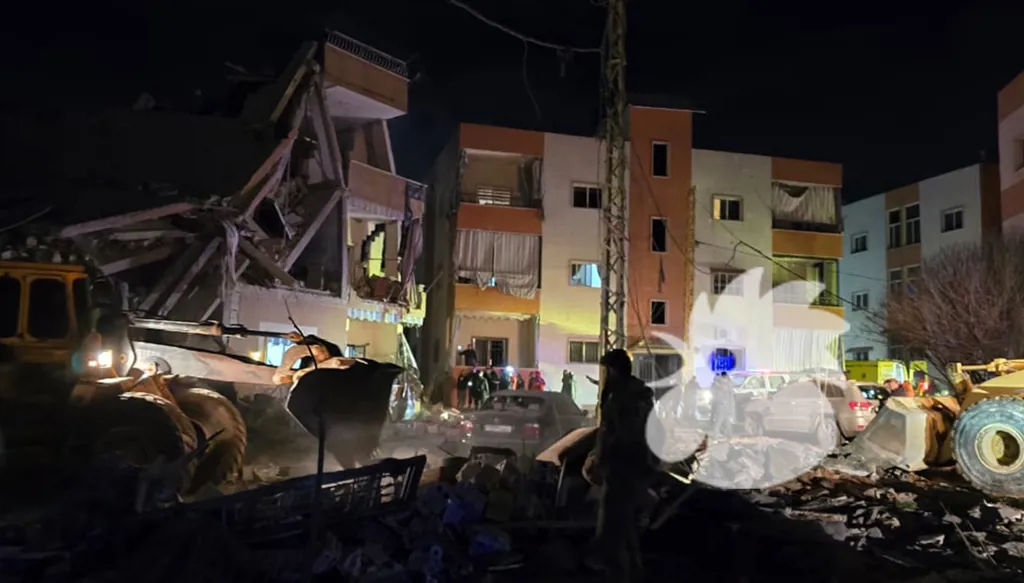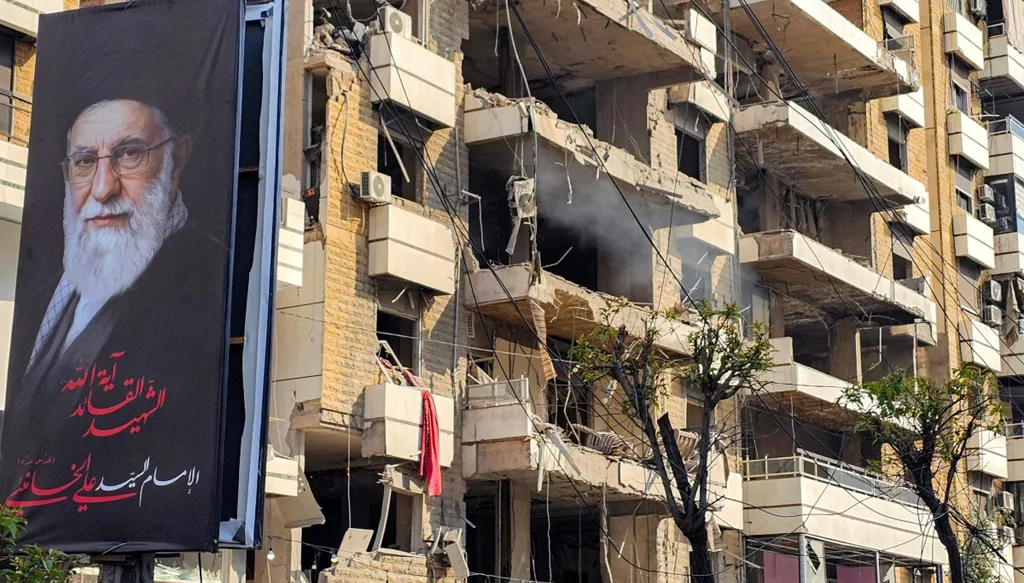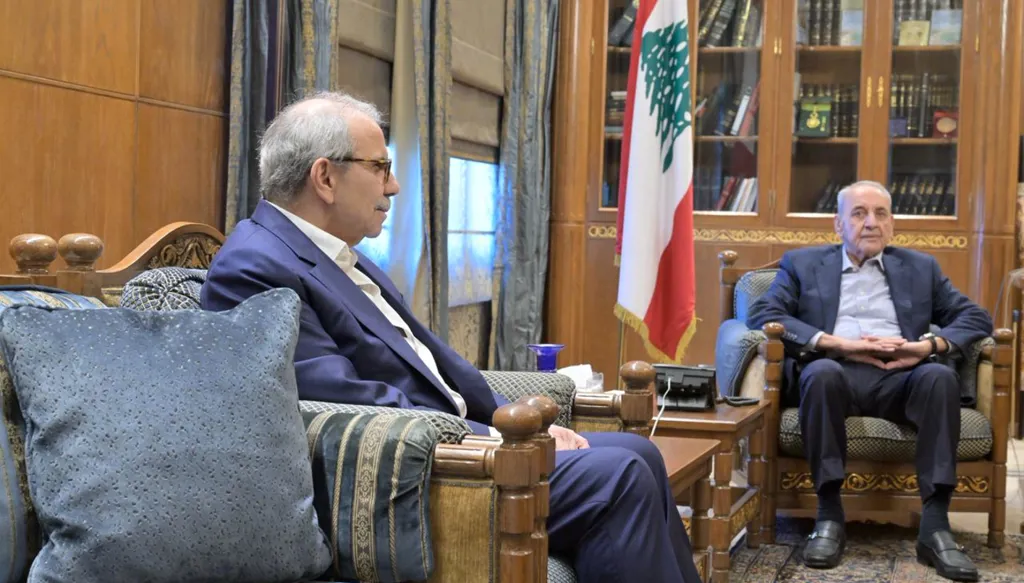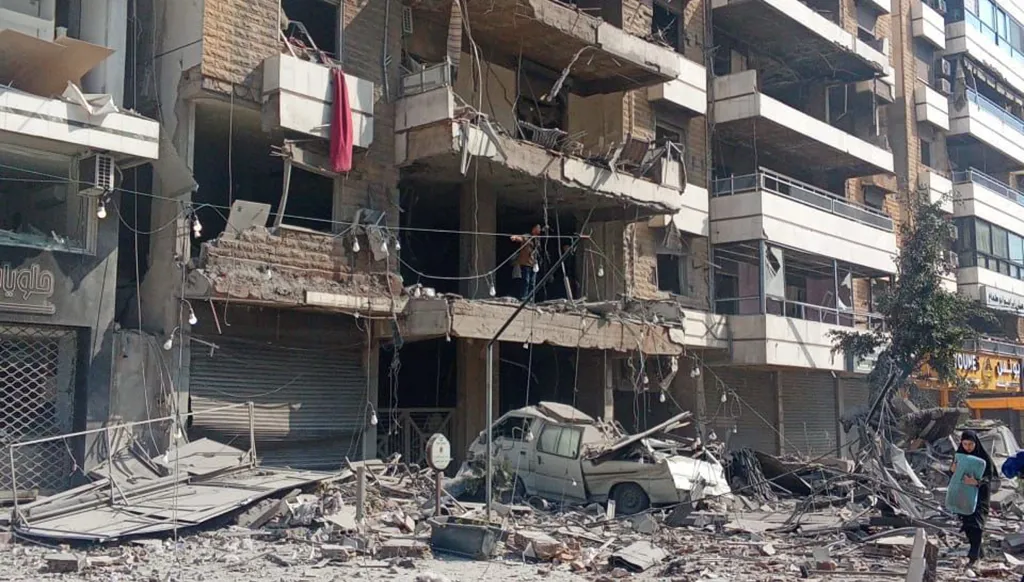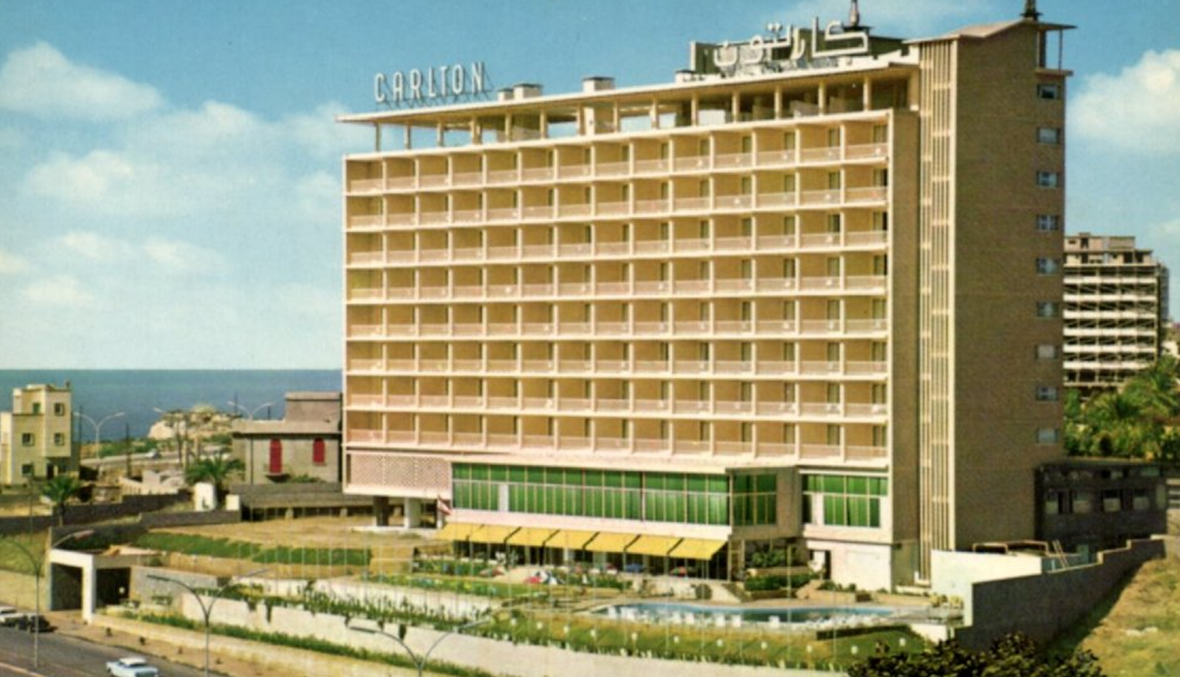
BEIRUT: Wither has gone the Carlton Hotel, once a hotbed of intellectual, political and arts gatherings, and a spot of tranquility during Lebanon’s long war, just a taxi ride away from the front lines.
While many memories are left, the old boy was torn down several years ago as obsolete - a common local story.
That said, the reminiscence and the history of a building that was George-Jetsonian-modern, defy the usual, with the Carlton seemingly almost a veritable movie-set of activity during its less than half-century of existence.
Longtime Middle-East correspondent Claude Salhani remembers, among the many events and frequent art shows at the hotel, that “During the horrible years of the 1975-1990 Lebanese civil war, the Carlton Hotel offered a haven of serenity and tranquility in an otherwise city gone mad.”
Salhani said, “As fighting raged just a few blocks away the Carlton Hotel's swimming pool was one of my favorite places to relax amidst relative security." He added, "The geographic location and the design of the hotel, with the swimming pool facing the Mediterranean Sea and the large, solid bulk of the building behind it, offered as much insurance as one could hope for...(from) mortar and artillery bombardment."
“Returning from covering the latest round of fighting, just a hop, skip and a sniper away was the pool of the Carlton Hotel, an idyllic getaway. Gin and tonic by the pool and one of the best Club sandwiches this side of the Rockies…”
Salhani noted by way of historical reference, “Elias Sarkis, governor of the Banque du Liban lived there until he was elected as President of the Republic, at which time he moved to the presidential palace in Baabda.”
Also, that the celebrated Lebanese political columnist Michel Abou Jaoude lived there. As one of the chief political writers for Annahar “many politicians would pay calls at the hotel to seek Abou Jaoude’s advice.”
It was also something of an architectural icon.
The Carlton Hotel was designed by Karol Schayer, a Polish architect who came to Beirut during the Second World War and is credited with modernizing the city. But even the modern gives way to the post-modern.
Joseph, who has been driving a Beirut taxi for longer than he cares to remember, smiled when asked about the hotel, saying “Oh yes, I remember it well. Everybody went to the Carlton, and I mean Everybody!” Cutting the corner sharply and honking, he added discretely and knowingly, "Also, it was a favorite of, shall we say (he is old school); confirmed bachelors."
This is repeated by others and would hold little relevance now decades later except for the fact that the gay world of Beirut is still rather sub rosa.
It also acted as a cultural locus for a cosmopolitan city that needed one during the 15-year conflict.
A retired MEA captain noted -- along with many others familiar with the Carlton -- that it was “owned by the Medawar brothers,” but also related that “Antoine (Medawar); was involved in the cultural scene here. He was the head of Jeuness Musicale du Liban for a long time, he was also involved in the Baalbek International Festival.”
A Beirut telecoms consultant said she visited often as a girl for respite from the fighting near her house.
“When there was war, a long time ago now, we were living under the bombing in my parents’ house in Spring Hill (Ras el Nabeh). We could not go out anywhere, the only place where we could go in the summer was the pool of the Carlton Hotel,” the consultant wrote an email. "My sister and I would go there to spend three or four hours far away from the noise and smell of the bombing."
She said that as time went on, “I was too young to notice anything but the fact is that I also remember how slowly, slowly, the Hotel was deserted and there were something like 10 people along this nice pool where you could see the airport and the beautiful sea.”
“To go out to the pool sometimes we would cross the big dining room and I remember the tables with their white clothes, empty.”
She ended wistfully, “The Carlton reminds me of the war a lot, but with a kind of blue hope out in the horizon...”
A cultural activist commenting on the overall destruction of heritage buildings in Beirut and Lebanon observed that along with a list of the such obvious edifices as the pink house of al-Manara; the traditional coffee house Ahwet el Ezaz Gemmayze; the Beirut Dome and the 19th century historic opera house in Tripoli ( masrah el inja); “Other retro buildings of important cultural value such as the Carlton Hotel built in the 60s, have already disappeared...”
“Retro” covers a lot of territories, but certainly includes the Carlton, which makes the argument that modernist styles from the 1960s – a half-century ago – are old enough, and campy enough to be “Retro” and “Vintage.”
This is not to be derogatory, but rather properly assign the value given icons like the Carlton a certain context behooving something built during an era celebrated in the American TV serial “Mad Men” about early 1960s advertising, and three-martini (at least) lunches.
In November of 2011, an usual artistic homage took place, entitled “The last Days of the Carlton, curated by attitudes (Geneva) in collaboration with the Beirut Art Center and Zico House, and held at the Beirut Art Center, which painstakingly collected archival material – files, pictures, and other ephemera to offer a window into the world within the Carlton Hotel.
In a statement of the exhibition, the project called the now-gone hotel, “A stronghold for intellectuals and party leaders during Lebanon's civil war, the Carlton tells a crucial social history of Beirut and its society in the 1960s, 70s, and 80s. The hotel opened its doors in February 1960 and quickly became the landmark of an increasingly vibrant Beirut intellectual, cultural, and political scene."
Then lamenting, "But like so much else in Beirut, the Carlton ultimately fell prey to the city’s brutal urban war. At the end of 2008, the Hotel’s remains were purchased by a real estate developer who sought to reinvent it as a luxury, three-tower residential compound.”
In 2009, as the developer was preparing to destroy the building, several tons of the Carlton’s documents were retrieved, which ranged from “tedious bureaucratic data to fascinating, often playful day-to-day details of workers’ and guests’ everyday lives in the hotel.”
One blogger noted in an antique posting from 2010 that its 1998 website “still roams the Internet like a ghost.”
In a similar reverie, one can almost imagine, though the hotel phones are long disconnected, that somewhere along the wires there is still an echo of, “Good evening, the Carlton Hotel.”
“We will land from Paris around 10 pm.”
”Splendid news -- as always there is a bottle of Moet on ice for you.”
“Thank you, Antoine.”
----------------------------------------
Annahar is featuring an occasional series of personal essays, entitled "Beirut Notebook," from our readers, citizen journalists, and our own correspondents, on their life experiences, ranging from work, travel, encounters, Lebanon living, solutions, fashion, cuisine, culture, family, tech, sport, study, and more. No politics, just Life.
Submissions welcome, send to [email protected]





 مسنجر
مسنجر
 واتساب
واتساب
 ثريدز
ثريدز
 بريد إلكتروني
بريد إلكتروني
 الطباعة
الطباعة
 تويتر
تويتر
 فيسبوك
فيسبوك





